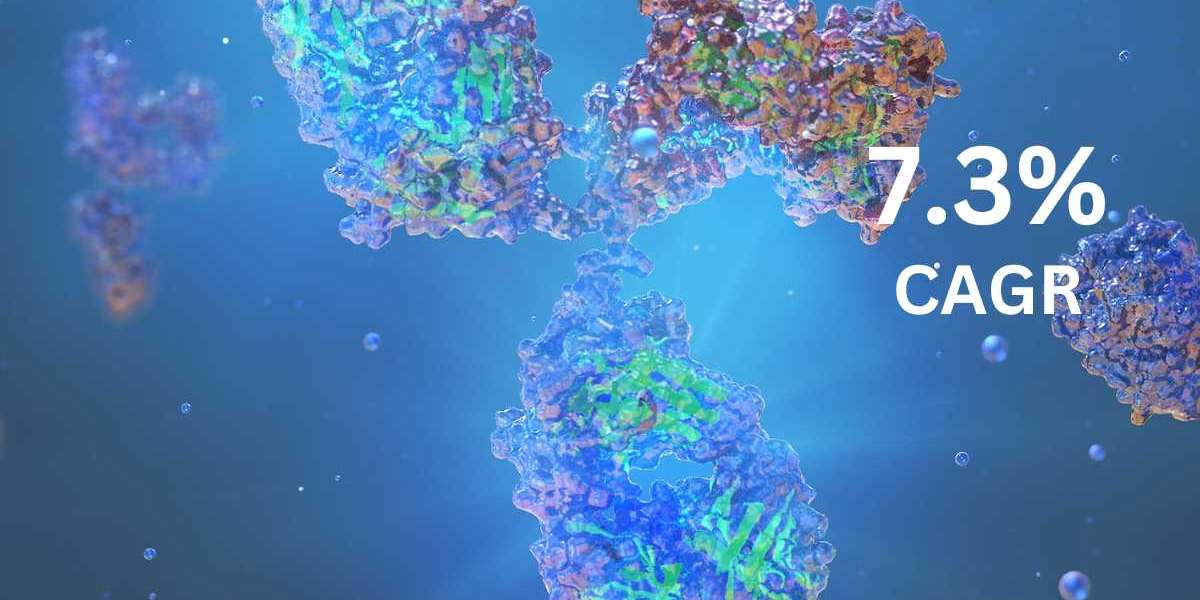The "Global Cancer Monoclonal Antibodies Market" report presents a thorough analysis of market dynamics, recent developments, and business strategy trends. It offers both qualitative and quantitative assessments of market size, share, future growth opportunities, and current trends. This comprehensive study examines market developments and growth drivers, including product launches, joint ventures, mergers, and acquisitions. It also assesses the impact of macroeconomic and microeconomic factors that could affect the market's expansion. Additionally, the report identifies challenges hindering market growth and outlines the expansion strategies employed by leading players in the Cancer Monoclonal Antibodies market.
The Cancer Monoclonal Antibodies Market is experiencing significant growth due to advancements in biotechnology that enhance the development and efficacy of these treatments. The rising global incidence of cancer drives demand for effective therapies. Personalized medicine trends, which tailor treatments to individual patients, boost the adoption of monoclonal antibodies. Additionally, increased funding from governments and private organizations supports cancer research and development. The approval of new monoclonal antibodies expands available treatment options, further propelling market growth. These factors collectively contribute to the rapid expansion of the Cancer Monoclonal Antibodies Market.
Market Dynamics:
Drivers:
1. High Efficacy and Specificity: High efficacy and specificity are crucial advantages of monoclonal antibodies in cancer treatment. These antibodies are designed to precisely target specific antigens on cancer cells, leading to effective elimination of malignant cells while minimizing damage to healthy tissues. This targeted approach enhances treatment outcomes and reduces side effects compared to traditional therapies. The precise action of monoclonal antibodies ensures that they bind only to cancer cells, improving the overall success rate of the therapy and providing a safer treatment option for patients.
2. Collaborations and Partnerships: Strategic collaborations between pharmaceutical companies, research institutes, and biotech firms enhance research, development, and commercialization efforts.
3. Rising Healthcare Expenditure: Increased healthcare spending globally supports the adoption of advanced cancer treatments, including monoclonal antibodies.
Restraints:
1. High Treatment Costs: The high cost of monoclonal antibody therapies can limit accessibility and affordability for patients, restraining market growth.
2. Stringent Regulatory Approvals: Rigorous and lengthy regulatory approval processes can delay the introduction of new monoclonal antibodies to the market.
3. Side Effects and Safety Concerns: Potential side effects and long-term safety concerns of monoclonal antibody treatments can hinder their widespread adoption.
4. Complex Manufacturing Processes: The intricate and costly manufacturing processes involved in producing monoclonal antibodies pose significant challenges.
Get a Sample PDF of Cancer Monoclonal Antibodies Market report:
https://www.dynamicmarketinsights.com/report/cancer-monoclonal-antibodies-market
Key Players:
· Johnson Johnson
· Novartis AG
· Eli Lilly and Company
· Hoffmann-La Roche AG
· Seattle Genetics Inc.
· GlaxoSmithKline PLC
· Amgen Inc.
· Bristol Myers Squibb Company
· Genmab AS
· Spectrum Pharmaceuticals Inc.
Market Segmentation:
By Antibody Type:
· Murine Antibodies
· Chimeric Antibodies
· Humanized Antibodies
· Others
By Application:
· Breast Cancer
· Blood Cancer
· Liver Cancer
· Brain Cancer
· Colorectal Cancer
· Others
By Region:
· North America
· Europe
· Asia Pacific
· Latin America
· Middle East
Regional Analysis:
1. North America: Market Characteristics: Dominates the global market due to high healthcare expenditure, advanced healthcare infrastructure, and significant RD activities.Key Drivers: Strong presence of major pharmaceutical companies, favorable reimbursement policies, and high adoption rates of new therapies.Challenges: High treatment costs and stringent regulatory frameworks.
2. Europe: Market Characteristics: Second-largest market with a well-established healthcare system and significant investment in cancer research. Key Drivers: Increasing cancer prevalence, supportive government initiatives, and collaborations between academic institutions and industry players. Challenges: Budget constraints in some countries and complex regulatory landscape.
3. Asia-Pacific: Market Characteristics: Fastest-growing region due to a large patient population, improving healthcare infrastructure, and rising healthcare expenditure. Key Drivers: Growing awareness about cancer treatments, increasing investment in biotechnology, and favorable government policies. Challenges: Limited access to advanced therapies in rural areas and cost barriers.
4. Latin America: Market Characteristics: Emerging market with growing demand for advanced cancer treatments. Key Drivers: Increasing incidence of cancer, improving healthcare facilities, and rising government initiatives for cancer care. Challenges: Economic instability and limited healthcare funding in some countries.
5. Middle East and Africa: Market Characteristics: Developing market with potential for growth due to increasing healthcare investments. Key Drivers: Rising awareness about cancer treatment options, improving healthcare infrastructure, and government efforts to enhance cancer care. Challenges: Limited access to advanced treatments, economic constraints, and regulatory hurdles.
Feel Free to Contact for any customization in Cancer Monoclonal Antibodies Market report:
https://www.dynamicmarketinsights.com/request-customization/DMI-12084
Conclusion:
In conclusion, the Cancer Monoclonal Antibodies Market is poised for significant growth due to advancements in biotechnology, increasing cancer incidence, and the shift towards personalized medicine. The high efficacy and specificity of monoclonal antibodies offer superior treatment options with fewer side effects, driving their adoption. Strategic collaborations, substantial funding, and favorable government policies further support market expansion. However, challenges such as high treatment costs, stringent regulatory approvals, and manufacturing complexities must be addressed. Regional variations in market dynamics highlight the need for tailored strategies to maximize growth potential globally. As the market evolves, continuous innovation and strategic investments will be crucial in overcoming these challenges and enhancing the accessibility and effectiveness of cancer monoclonal antibody therapies. The ongoing commitment to research and development will ensure that these therapies remain at the forefront of cancer treatment, offering hope and improved outcomes for patients worldwide.
The report provides:
· A comprehensive assessment of the Cancer Monoclonal Antibodies Market share at regional and country levels.
· Strategic recommendations for new market entrants.
· Market forecasts for a minimum of nine years across all segments, subsectors, and regional markets.
· Analysis of market trends, including drivers, restraints, opportunities, threats, challenges, and investment opportunities.
· Strategic analysis incorporating drivers and constraints, product/technology analysis, Porter's Five Forces Analysis, SWOT Analysis, and more.
· Strategic recommendations for key business segments based on market estimates.
· Competitive landscape mapping highlighting key common trends.
· Detailed company profiling, including strategy, financial information, and recent developments.
· Supply chain trend analysis, showcasing the latest technological advancements.
For any questions or enquiry before buying get in touch with our experts at: https://www.dynamicmarketinsights.com/request-inquiry/DMI-12084
About the company:
Dynamic market insights involve real-time analysis of evolving market conditions, utilizing technology and real-time data. Essential for adaptability, they encompass competitive intelligence, consumer trends, regulatory shifts, and global perspectives, empowering businesses to make timely and informed decisions in a rapidly changing environment.
Our Syndicated research provides diverse industries with pre-compiled market reports, offering valuable insights into trends and dynamics for informed decision-making.
Contact Us :
Dynamic Market Insights
Name – Shrihari Patharkar
Email – sales@dynamicmarketinsights.com
Website - https://www.dynamicmarketinsights.com



